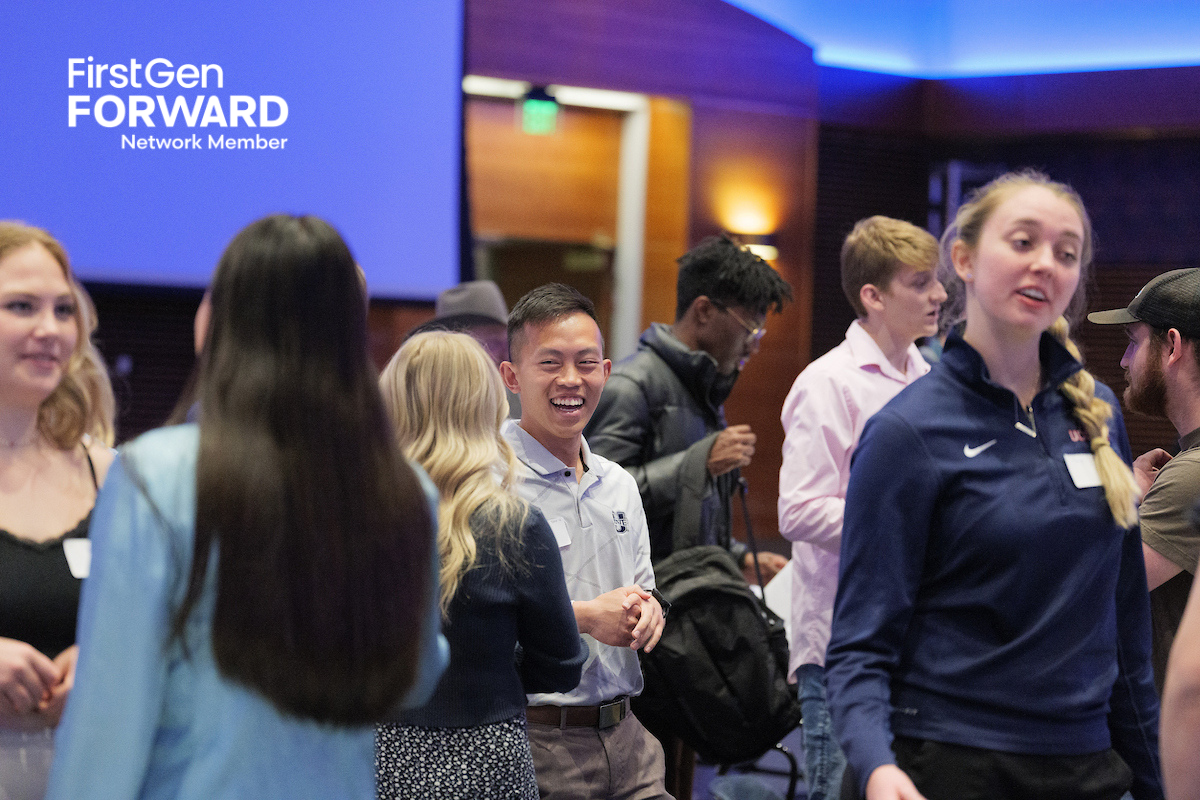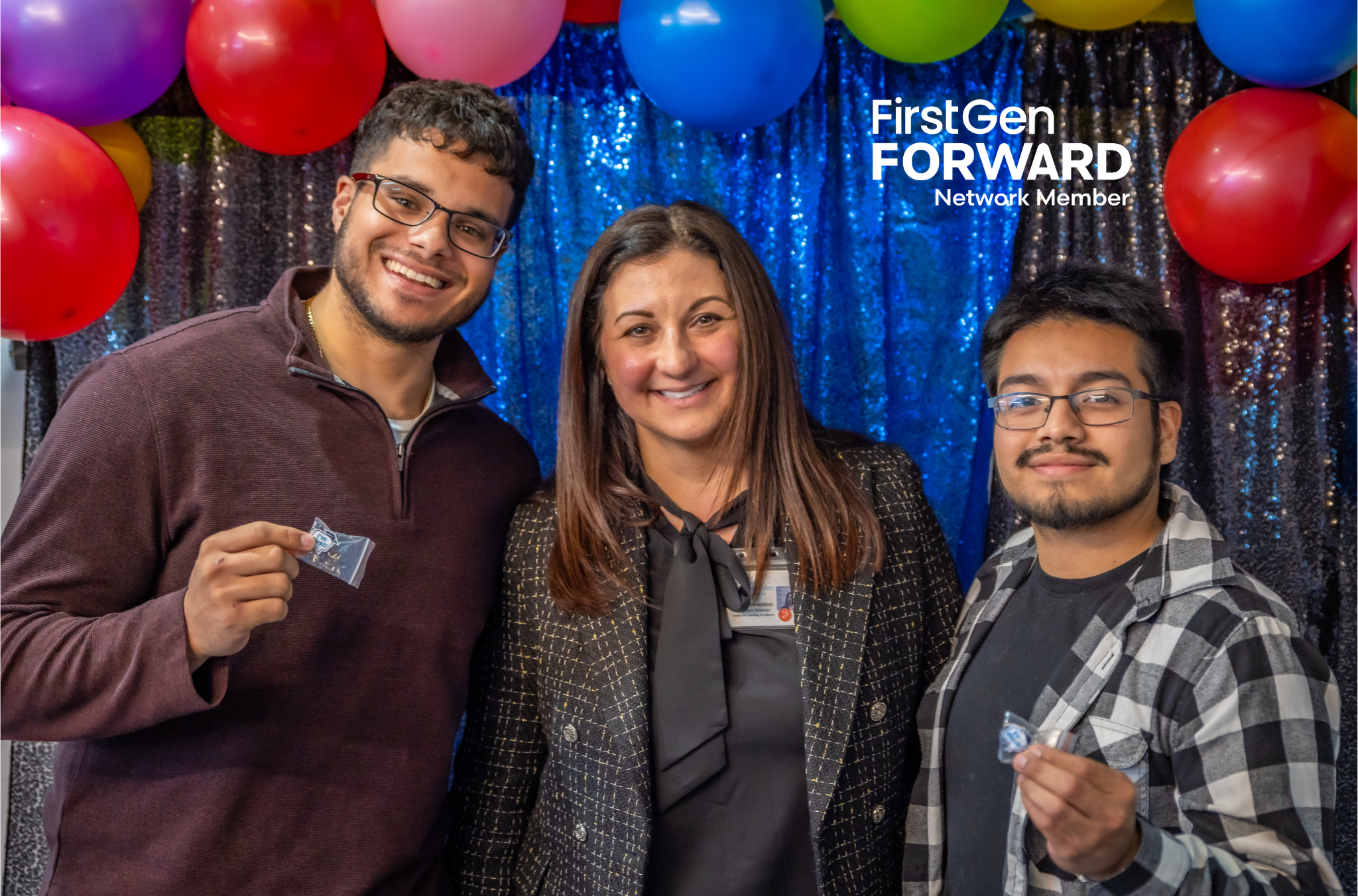Many first-generation students build their professional networks in college—leveraging campus resources is the first step in that journey.
Students arrive at college with their own unique resources, skills, and communal networks. However, they may lack access to a professional network within their specific field of interest. For example, a student who is the first in their family to pursue engineering might not know any professional engineers. That’s where the university plays a vital role—often serving as the first space where students engage with professionals in their intended careers. How we, as institutions, support and prepare first-generation students for post-graduate opportunities is critical to their long-term success.
At Utah State University, the first-generation program Aggie First Scholars recognized a trend: first-generation students were asking for more internship and networking opportunities within their fields. In response, they partnered with the Jon M. Huntsman School of Business’ Student Business Council to bring this vision to life.
In partnership with Aggie First Scholars, the student-led Business Council organized a networking event tailored specifically for students in the business college. The council reached out to key corporate partners—including Maverik, Charles Schwab, General Mills, and iFit—inviting representatives to share their career journeys and advice with students. Meanwhile, Aggie First Scholars promoted the event among first-generation business students and offered tips on how to dress professionally and engage effectively with corporate representatives.
The result? Seventy-five first-generation students attended. The room buzzed with eager conversations, business cards were exchanged, and LinkedIn connections were made. For many students, it was their first time speaking directly with a corporate professional or inquiring about internships. For others, it affirmed their confidence in their chosen major.
The best part? This event is replicable at your institution. There was no magic wand or major budget—just the power of intercampus collaboration.
Tips for Hosting a Networking Event on Your Campus:
Identify Student Partners
Collaborate with student organizations like student councils or ambassadors who are excited to help. Their networks will amplify your event’s reach and impact.
Identify Community Partners
Look for organizations already engaged with your campus through volunteering or donations. Many companies are eager to connect with students—they just need the invitation.
Plan the Logistics and Do Outreach
Pick a date early and notify your target audience. Reserve the space and prepare any necessary tech ahead of time. A well-organized event shows professionalism and builds trust with both students and partners.
Prepare Your Students
Networking can be intimidating, especially for first-timers. Provide students with tips on professional etiquette, review their LinkedIn profiles, and help them refine their elevator pitches.
Follow Up
Send a thank-you email to both students and company representatives after the event. It’s a small gesture that keeps your campus network strong and opens the door for future collaborations.
For more information on Utah State University's approach, please visit their website here.


